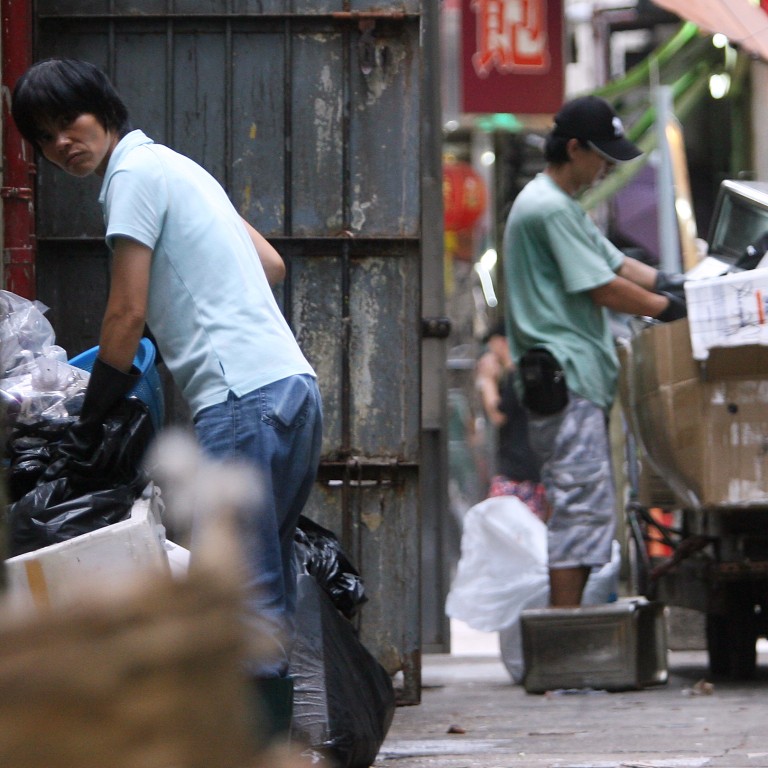
Government outsourcing hurts Hong Kong 'working poor' the most, says critics
Hong Kong's biggest employer, the government, should stop taking the lead in outsourcing low-income jobs and contributing to poverty, critics urged as officials prepared to unveil the city's third poverty report at the annual poverty summit today.
Hong Kong's biggest employer, the government, should stop taking the lead in outsourcing low-income jobs and contributing to poverty, critics urged as officials prepared to unveil the city's third poverty report at the annual poverty summit today.
Their calls came as audit figures showed government expenditure for outsourcing services tripled from HK$2.62 billion in 2004 - a year after the government started its outsourcing practice - to HK$7.18 billion in financial year 2013-14.
Over 80 per cent of government departments awarded tenders to companies offering the lowest price and 75 per cent of service providers voiced concern there was little room to negotiate the price when bidding for contracts, according to a 2012 survey by the Efficiency Unit under the chief secretary's office.
University of Hong Kong Professor Paul Yip Siu-fai, an expert on population and labour trends, said: "The government's leading role in outsourcing low-income, low-skilled jobs is perpetuating a bad practice, and contributes to the creation of a large working poor population."
Last year's poverty report stated that 1.3 million Hongkongers were living in poverty - equivalent to about one-sixth of the city's population. Elderly poverty is a more widespread problem, as one in three elderly people qualified as poor, the report found.
The report released today will be the third since the city's poverty line was set in 2013. The government said figures for elderly and working poor would resemble last year's.
Hong Kong families whose incomes are not more than 50 per cent of the median household income are deemed poor. One-person households with a monthly income under HK$3,500, for example, are considered poor, as are four-person households earning less than HK$15,400 a month.
Among families living below the poverty line, half of them are called "working poor" as at least one family member has a job.
Yip, noting that outsourced contracts go to companies offering the lowest prices, said: "Who do you think shoulders the cuts? The workers, of course."
He said outsourced workers usually earned 20 to 30 per cent less than non-outsourced workers and that "the government will have to pay in social security support for problems they created with bad labour practice". Yip added that while outsourcing affords flexibility, it should be used for jobs created for a fixed period of time, not for those lacking bargaining power.
Rocky Tam Lok-kei of the Confederation of Trade Unions said an outsourced security guard at a public housing estate was typically paid the minimum wage of about HK$8,000 a month, while those hired by private estates earned HK$14,000.
Tam urged the government to add a clause to its tenders, obliging contractors to pay salaries above the minimum wage to account for inflation.
A reply from the Efficiency Unit said the report advised departments to use mandatory requirements "to ensure that price alone does not become the dominant factor in decision making". It added that the government "does not condone any malpractice by contractors".
